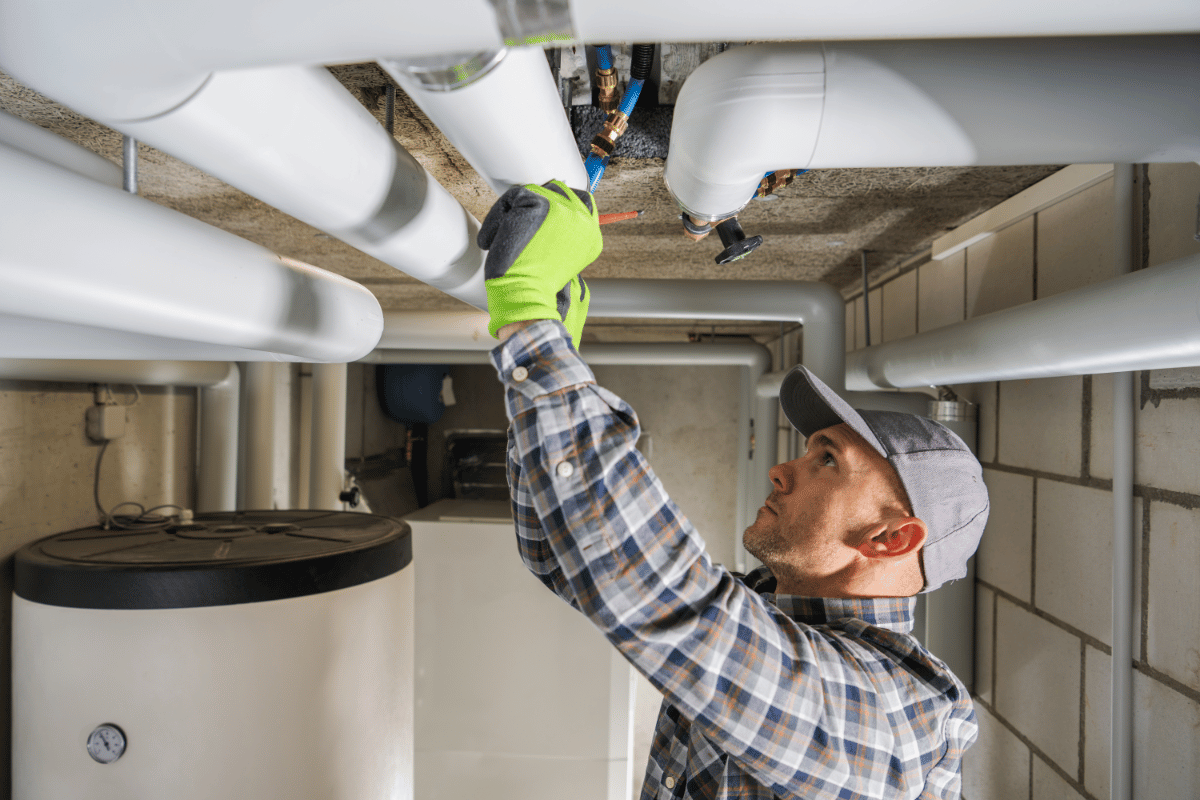How to Prevent Sewer Backups in Commercial Properties
In the realm of commercial property management, a sewer backup can spell disaster. Such incidents disrupt daily operations, cause extensive damage, and incur hefty repair costs. Understanding how to prevent these issues is crucial for property managers and business owners alike.
Implementing strategic maintenance and operational protocols can reduce the risk of experiencing a sewer backup. Let’s examine the proactive measures that can ensure your commercial property remains free from sewer overflow problems.
The Causes of Sewer Backups
Sewer backups commonly occur due to blockages, flooding, or system failures. In commercial settings, the sheer volume of wastewater disposal can exacerbate these issues. Improper disposal of waste materials, such as grease and food remnants from on-site kitchens, can lead to clogs in sewer lines.
Root intrusions from nearby trees can penetrate sewer pipes, the primary cause of significant blockages. Regular inspections of the sewer system identify and resolve potential issues before they escalate. The right plumbing company can provide expert insight into the specific vulnerabilities of your property’s plumbing layout. Understanding the root causes of sewer backups can help you create a tailored prevention strategy, ensuring the longevity of your building’s plumbing system.
Upgrade Older Plumbing Systems
If your commercial property employs older plumbing systems, it may be time for an upgrade. Aging pipes are more susceptible to corrosion and develop cracks over time, leading to leaks and blockages. Replacing old pipes with modern materials can enhance durability and efficiency.
Opting for PVC or HDPE piping can mitigate the risks associated with traditional piping systems. Consulting with a full service plumbing company can provide valuable recommendations tailored to your property’s specifications. Modern systems often include advanced drainage solutions that help manage large volumes of wastewater more effectively. Property owners can prevent the majority of sewage-related issues and ultimately save costs in the long term.
Routine Maintenance and Inspections
Implementing a routine maintenance schedule prevents sewer backups. Regular inspections detect potential problems early and ensure that all systems are functioning optimally. This encompasses checking for leaks, assessing the integrity of sewer lines, and clearing debris from grease traps to avoid buildup.
Many businesses overlook these crucial maintenance tasks until it’s too late. Scheduling these maintenance activities quarterly can provide peace of mind and extend the life of your sewer system. Investing in video inspection technology can reveal hidden issues within pipes and allow for precise interventions. A qualified plumber to perform these inspections will ensure that problems are addressed promptly and reduce the possibility of a backup significantly.
Proper Waste Disposal Practices
Proper waste disposal practices minimize sewer backup risks in commercial spaces. Staff education on what can and cannot be flushed down toilets or poured down drains is vital. Many establishments unknowingly dispose of harmful materials that contribute to sewer line clogs — this includes grease, oils, non-biodegradable items, and even certain chemicals. Having marked disposal points for hazardous waste can drastically reduce harmful practices.
Creating a culture of environmental responsibility among employees can reinforce these practices. By regularly conducting training and reminders about waste disposal, businesses can lower the chances of a sewer backup and keep their plumbing systems healthy.
Utilizing a Backwater Valve
Installing a backwater valve is another effective strategy for preventing sewer backups. These devices work by allowing sewage to flow away from the building and preventing it from reversing direction during heavy flow or flooding. This mechanism serves as a safeguard against heavy rainfalls or sewer system failures.
Connecting with plumbing professionals can ensure proper installation and maintenance of these valves. Regular testing of the valve’s functionality guarantees it will perform efficiently when needed most. Once you incorporate a backwater valve into your plumbing system, you create an additional layer of defense against potential sewer issues, protecting not just the property but also the health of its occupants.
Emergency Preparedness Plans
Having an effective emergency preparedness plan can mitigate the impact of a sewer backup when it does occur. This involves creating a response strategy that includes designated personnel to handle emergencies, tools required for clean-up, and an evacuation plan if necessary.
Communication is key; informing employees about what steps to take in the event of a backup ensures a swift response. Draining system assessments post heavy rainfall or snowmelts can preemptively manage sewer load. It is also prudent to partner with local emergency services and plumbing companies for rapid assistance. Regular drills and updates to the emergency plan prepare staff, minimize damages, and streamline responses in critical situations.
With the right strategies in place, preventing sewer backups in commercial properties can be manageable. Implementing preventive measures and engaging professionals in plumbing services will safeguard the property and ensure the business continues without disruptions.







